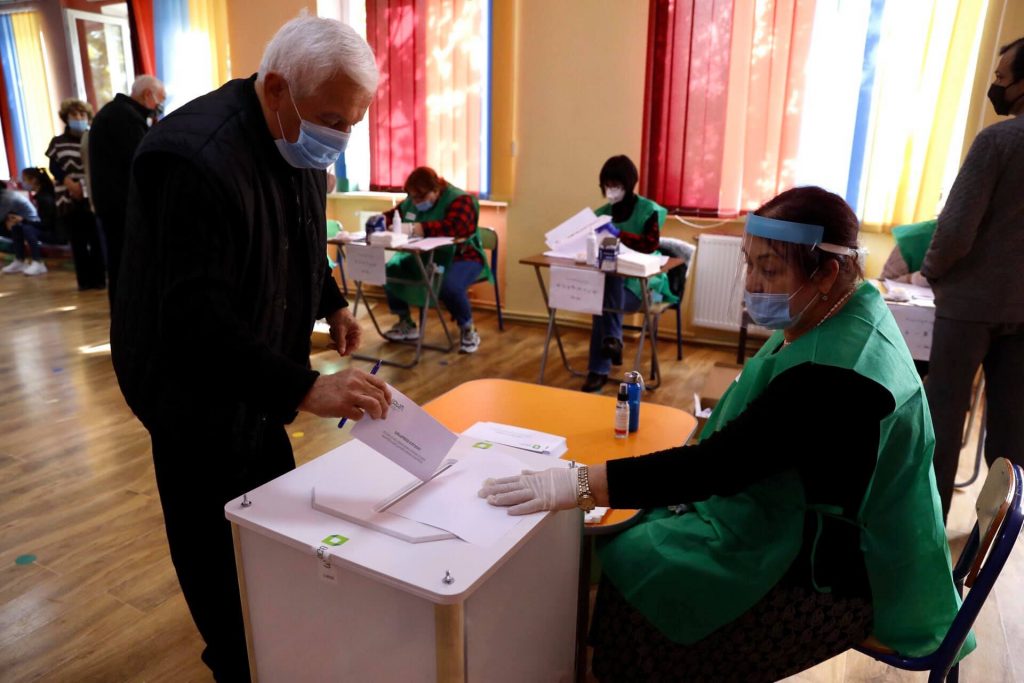The International Society for Fair Elections and Democracy (ISFED), a key election watchdog in Georgia, discussed and reaffirmed today its earlier PVT finding that showed disbalance in 8% of final vote tallies of October 31 parliamentary, a finding disputed by the ruling Georgian Dream party.
The watchdog asserted that in 8% of the proportional summary protocols of the 850 polling stations sampled in the Parallel Vote Tabulation, the sum of votes received and annulled votes exceeded the number of voter signatures. The organization added that proportional vote ballots fell behind the signatures in 25.8% of the precincts.
Speaking of the said 8% of precincts with received plus annulled ballots exceeding the number of overall voters, the watchdog said on E-day Precinct Election Commissions (PECs) corrected disbalances in 0.7% of the overall vote tallies; subsequent corrections further balanced final vote tallies in 2.9% of precincts, but left overall 0.7% imbalanced. Meanwhile, in 1.3% of the polling stations, PECs provided explanatory notes but did not make corrections to the disbalance, ISFED noted. The watchdog also said in 0.6% of the precincts, correction protocols were made “in dubious circumstances,” while in 1.8% of the cases the tallies were corrected with procedural violations.
Speaking of the 25,8% of precincts with proportional vote ballots falling behind the overall number of voters, the relevant administrations did not address inaccuracies in 19.4% of the overall polling stations. Some of the discrepancies – 6.4 % of overall precincts – were addressed immediately on the voting day or afterward, but nevertheless, at 3.2% of overall precincts, the final vote tally balance could not be achieved.
In cases when Election Commissions did submit the amendment protocols, ISFED argued they were often not fully in accordance with standards required by the law.
CEC Responds
The Central Election Commission responded later today to the allegations, noting that “the so-called misbalance referring to more ballots in relation to the number of voters was found only in 19 summary protocols – 0,52% of main polling stations opened in Georgia.”
Noting that ISFED “did not consider amendment protocols when processing this data” regarding the said 8% of precincts, the CEC spoke of “dissemination of incomplete, inaccurate, and consequently incorrect information” by ISFED. The Commission said this goes “definitely against professional standards and for the second time, it questions the results of PVT with regard to statements made by an organization so far.”
“It is regrettable that the dissemination of inaccurate data during the election period (wrong explanations) also led to misperceptions among the public, and it can be said that a part of the society was misled,” the CEC highlighted.
Background
ISFED’s Parallel Vote Tabulation previously led to controversy, when it released revised results on December 11, on the opening day of the new Parliament, showing an increase in the vote share of the ruling Georgian Dream party from an initially counted 45.8% to 47.7%.
The controversy led the resignation of the organization’s Executive Director Elene Nizharadze on December 25, after the organization’s Board held her responsible for the issue.
This post is also available in: ქართული (Georgian) Русский (Russian)

